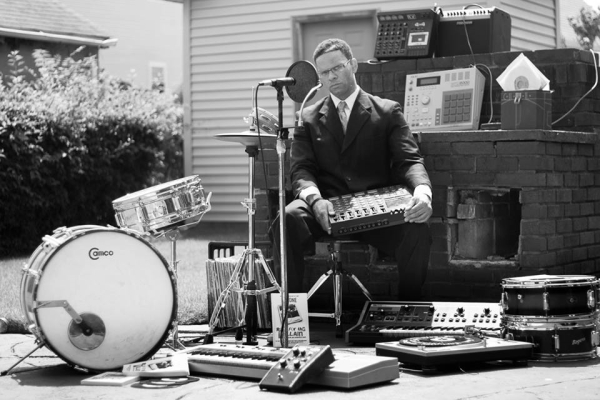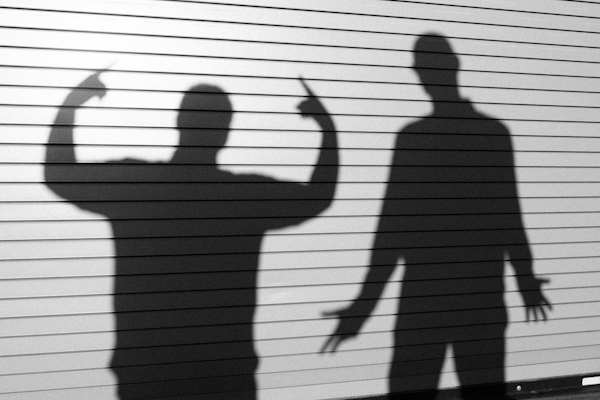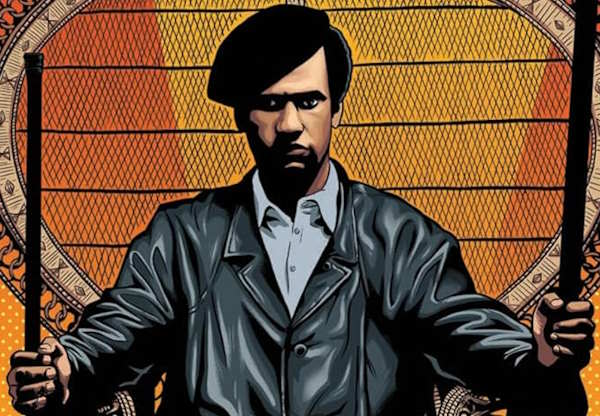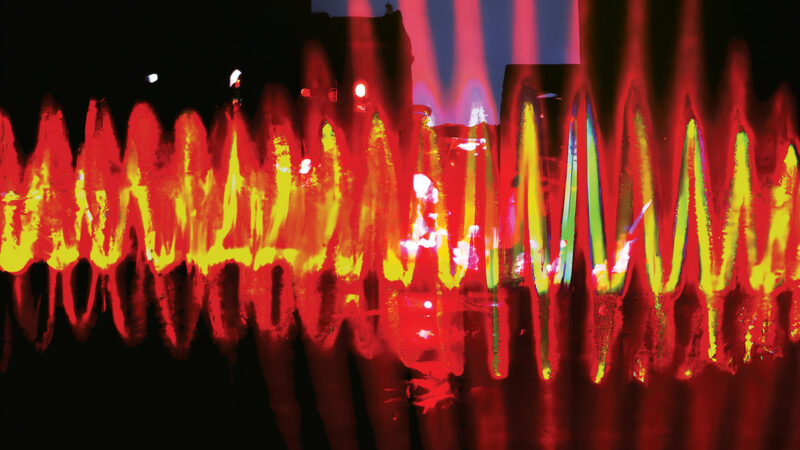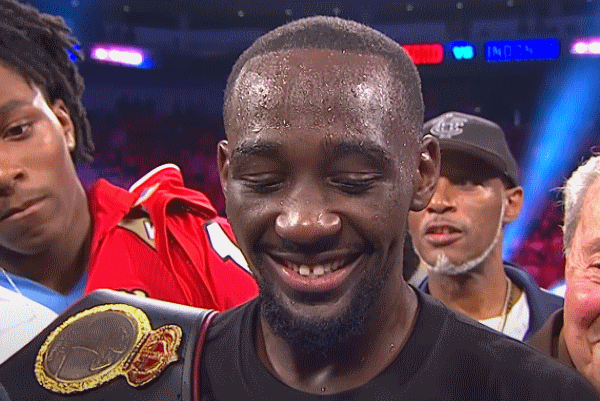By TJ Love
Rapper/producer J-Zone is an underground legend. His ear for samples and neck-snapping, yet quirky boom-bap production, along with a penchant for raps that elicit more laughs than your average stand-up comic had him running shit in the early 2000s. His first three LPs, Music For Tu Madre, Pimps Don’t Pay Taxes, and $ick of Bein’ Rich are all certifiable indieground classics. He’s had a long list of collaborators ranging from Devin The Dude and Masta Ace to Tame One and Breeze Brewin.
But a funny thing happened on the way to rap stardom. Despite an initially rabid fanbase, the tide turned, his popularity waned and J-Zone found himself confronting an uncomfortable reality for an entertainer: real life. After giving up on rap, he wrote about his experiences in his self-published hilarious manifesto Root For The Villain and he’s taken up playing the drums. Planet Ill got the chance to sit down and chop it up with Captain Back$lap and pick his brain on everything including his grandmother’s notable contributions to his catalog, his insights on the lesser known aspects of the rap game, and his new album due in September, The Peter Pan Syndrome.
Planet Ill: How’s everything in Pimp Palace East?
J-Zone: Chillin’. Just got out of a session.
Planet Ill: Is Evil E still trippin’ about you and your friends parking hot cars on the grass strip?
J-Zone: Ohhh(laughs) She’s so senile she can’t even tell. I don’t really have people over that much anymore, and I got the grass strip removed like right after that skit was made. I came back from tour and used 1/5th of my money to get that shit black-topped so I wouldn’t have to hear that shit anymore.(laughs) That was like ’04 so that hasn’t been an issue since then.
Planet Ill: Most people’s grandma’s can’t even understand Hip-Hop, much less like it. Evil E is always willing to lend her talents to your albums, whether it be skits or album covers. In terms of people you’ve worked with, is she up there with Al-Shid, Huggy Bear, Masta Ace, and Celph Titled? Is she one of your favorite collaborators?
J-Zone: Yeah, yeah, she’s definitely, um, surprisingly good. Some of that shit was candid, the shit about the grass was candid, that wasn’t rehearsed. I just had the tape deck rolling and I purposely parked the car there so she’d flip the hell out. That wasn’t scripted at all.(laughs) But some of the other stuff on Pimps Don’t Pay Taxes I had her do the J-Zone fan club thing, you write it out and she puts the glasses on and reads it and she gets it in one take, ya know. So she was up there with the rest of them dudes, that’s for sure.
Planet Ill: You’ve taken up the drums in the past couple years. What prompted this new interest?
J-Zone: The drums came from, um, I’ve always been a funk head. When I was younger I played bass, in grade school, junior high school, high school. My influence was funk. That’s how I got into Hip-Hop, from all the funk records I had that were being sampled. So funk was always my primary love before Hip-Hop, and when the rap thing kinda got stale I kinda took a couple years off from music and I wasn’t even checking for Hip-Hop like that.
I went back and started revisiting a lot of my old funk records and started getting DJ gigs playing 45s and playing funk stuff. And when you listen to all these drum breaks after years of sampling ‘em, one day I was like, “I wanna try to do that.’” Then I saw some video of James Brown’s band playing in the sixties and the drummers Clyde Stubblefield, Melvin Parker, Nate Jones and all of them cats. Jabo. Like, he had the crazy drummers. So you watch the video and you start to think, “Maybe I could do that.”
Right when the book came out at the end of 2011, I bought a kit. But I actually got a kit as a gift from a family member cuz my Pops was so happy that I published a book, he knew I was talking about drums, he got me a little cheap start-up kit and surprised with that shit and I was like ‘wow’. I just started banging on it, not knowing what I was doin’, I was busy promoting the book and doin’ other shit so I didn’t really get a chance to start getting serious til about a year ago, early 2012 or whatever.
I took a couple lessons from a kid at the college I was teaching at. He showed me the basics. I bought a couple of theory books, started looking at youtube videos, my trainer at the gym used to be a drummer…so just picking different ways to learn. Now I train with a jazz drummer, old school cat. Real real dope jazz drummer. We play once a week, jam out, and he tries to help me with my technique and shit. But primarily I just learn on my own and play it by ear and in the last year I just did a lot of research. Like how to recreate those old break beats, what kind of drums they used, what kind of mics, how the rooms were set up etc.
The projects I’m working on now, I mostly play my own drums and try to get that old break beat sound. So it’s not just drums, it’s the mics, the audio, how to get ‘em to sound grimy and not sound like some Unplugged shit…but some grimy, funky, hip hop shit. That’s been a whole experience. It’s been real dope, it’s kinda what got me back into music again.
Planet Ill: With your newfound drumming abilities do you just plan to focus on Hip-Hop or do you plan to play jazz or other genres of music? Do you plan to play in a band?
J-Zone: For now I’m just playing on my own stuff. But I played last week for the first time at a jazz thing for the first time in front of some people, and they put me on the spot, I’d never played jazz before and it prompted me to start training with this dude and taking lessons. I wanna take it as far as I can take it. You know what people say when you start playing drums later in life. It’s hard.
You got to Guitar Center and you see little ten year olds, nine year olds, these motherfuckers is…killin’ it. Because when you’re that young you’re not worried about having a job, you’re not tryna make money, you don’t have to worry about dating, you’re not taking care of relatives. All you do is go to school and come home and practice for six hours, like how I used to do with Hip-Hop or with the bass.
I don’t have the time to put into it that someone else does, but I do try to get my two, three hours a day into that shit. I’m trying to take it as far as I can man. I’d like to play professionally one day but I also know realistically there’s a lot of great drummers who don’t get a chance to. A lot of it is luck. A lot of it is just the right opportunity but I’m taking it as far as I can, ya know?
Planet Ill: My first experience with your material was in 2000 on a website, Undergroundhiphop.com. They posted up No Consequences and the blurb with it described you as the underground Eminem, because people couldn’t get enough of you, at the time. Eventually things kinda went south in that department in terms of people accepting you. What did it feel like to go from being a critical darling to people writing you off despite you continuing to stick to your guns and make the music you wanted to make?
J-Zone: I wasn’t really prepared. The music took off out of nowhere. I came out of college with my senior project [his first album, Music For Tu Madre] and I had no idea. I knew how the business worked a little bit from working with Vance Wright, he was Slick Rick’s DJ, and I interned for him in high school so I knew a little bit, but in terms of how fickle fans are…I mean, me, I was always the kinda guy who was very loyal. When there was an artist I liked, I rode it to the very end and bought everything. But I had to realize that the average fan is not like me.
Somebody may have had an album that wasn’t promoted for well but I checked for artists that I liked so hard that even if it ain’t promoted I’ll find that shit. But the average person has no attention span, they’re fickle, and they identify with certain things. So inadvertently the first two, three albums I’m making stuff and at the time I’m just reflecting my life and how I feel but as you get older…you change a little bit. I’m not saying that you mature so much that you become boring but you just get different interests and I have a wide array of influences. Little by little my different influences came out. Cash Money Millionaires and Public Enemy both influenced me so it’s gonna come out in my music.
As I started to delve deeper into my influences, draw from different influences, try to keep my trademark sound but still be diverse in my approach….I also got pigeonholed with a type of sound, a type of production. Everybody was like ‘yeah, he’s gonna sample an accordion and rap about Lucy Liu’ and I got tired of that shit cuz, you know, like you said, that was just a snapshot of my life.
In the year 2000 that’s what I was sampling, that’s what I was rappin’ about. In 2004 I’m in a different place so I’m gonna do different shit. A lot of fans don’t understand that artists grow and they don’t always grow in the direction that…The fans are kinda like whatever their first impression of you is they want you to stay that way forever. Myself included, ya know.
My first impression of Busta Rhymes is the Case of The PTA video running through high school with faded dreds and a green coat and acting crazy. Now he’s all swole up with a caesar, and he’s still Busta ya know, but he ain’t gonna be the same kid he was 23 years ago. A lot of fans don’t get that, and I didn’t have the promotion to really push my newer material to an audience that would like it, so, ya know, eventually things got tough and I got discouraged and turned off from the music business.
Planet Ill: Your records have always had a very comedic sensibility, do you have any insights as to why people aren’t willing to have fun in hip hop nowadays. You’ve done Go-Rilla Pimps, Chief ChinchillJ-Zone: Live At The Liqua Sto, your skits are always funny as hell, and you’re very unique in that respect because nobody is making records or even songs that are funny at all. Why do you think people kinda shy away from that now?
J-Zone: Ironically, I think a lot of the stuff coming out now is closer to where I was going then than the stuff that was around when I was really doin’ it. Whether Odd Future is your cup of tea or whether some of the new cats are, some of these guys are like, sayin’ way out shit, and they have a niche audience for it. I think the problem was rap was so segregated when I was really really active that it was like everything had to be put in a box. Whatever people can’t categorize they don’t bother with.
So it’s like ‘ok, he’s got these quirky samples, underground, boom bap beats, but then he’s talking about ‘slap this bitch, fuck this ho, where’s my money’. But the content is more in line with Cash Money but I was being kinda ironic about it.
So dudes who listen to the hardcore down south shit real tough would probably be like ‘he’s saying some shit’, but the irony would go over their heads, ‘yeah but he’s also rappin’ about jerkin’ off, what is this weirdo shit?’ The underground kids are turned off by that but then they like the production and because it’s distributed by Fat Beats and it’s selling between three and four, five, ten thousand copies that’s considered underground, they say you’re gonna do a tour with this group, this group, and this group, based on sales, distribution network, and where the records are being sold.
And when it was time to do shows and I’m opening up, and these are my boys, but I remember opening up for Atmosphere one time and they have a very female audience. Their fanbase is…a lotta women listen to their shit. Their shows aren’t a sausage fest. So I’m like ‘oh shit, there’s girls here, that’s dope. A Hip-Hop show with girls.’ And I’m up there doing my shit with the fur coat on and when I’m on the way out these girls are like disgusted. There coming up to me and “that was terrible. That was so misogynist and ignorant” and yada yada.
And Atmosphere, my album and their album, were the first two albums to be released on Fat Beats records when they established it, so they were promoted together. And Slug is my man, so we got along, we were cool and to this day that’s my man. Fat Beats was like ‘Hey, this is our new label. These are our first two albums. We had J-Zone, we had Atmosphere.’ We were promoted in unison, we had shows together.
But back then it was like if you were into Atmosphere it wasn’t cool to understand the humor in Cash Money. It was like you had to be one or the other and I’m over here coloring outside the lines, crossing all these boundaries, like, every single boundary I ignored. And the bottom line is I appealed to a lot of fanbases but I also turned a lot of people off by doing shit that was suitable for another fanbase. To me it was just music.
There’s all kinds of politics and rules and boundaries in Hip-Hop. This has to be real, this has to be that, and you can’t rap about this, you can’t be from the hood and rap about jerkin’ off. (laughs) You can’t be a true underground emcee who loves the culture but still love the NBA and like to get pussy. There’s all these rules and shit and they didn’t know where to put me so I wound up basically turning everybody off is what happened.
There was no place for me to go and there was nobody for me to tour with, that was the biggest thing. I couldn’t tour in the US. I couldn’t get shows. And, after that, if you can’t get on the road then it’s very difficult to uhh….and there were no blogs, there was no youtube then. And now we have other mediums to help out with touring so you hear about stuff through youtube or the blogs, social media. Back then there was none of that shit. If nobody mentioned me on a message board, my website wasn’t the greatest website, so if you didn’t stumble across it on a message board or a random interview you just didn’t know who the fuck I was. That was just it.
In Part 2 J-Zone addresses race and hip hop, crate diggin’, rap personalities, the movie Adult Rappers, the NBA, his new album The Peter Pan Syndrome, and more.

